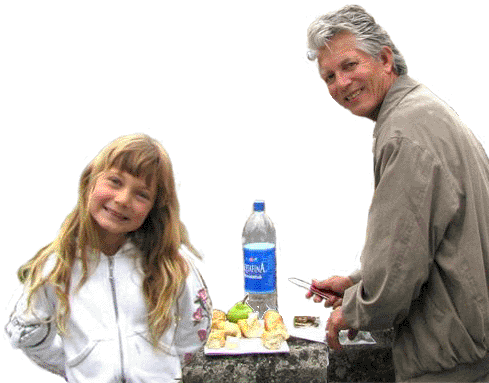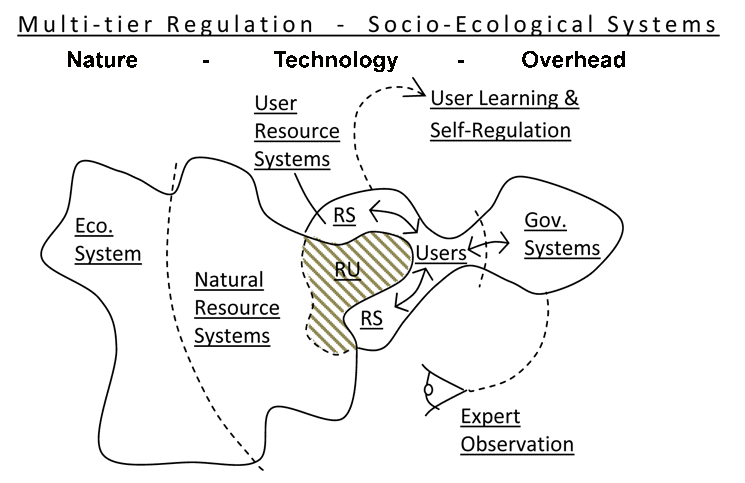

Nature's business plan begins with the growth of complex relationships, like organisms, families, businesses, ecologies. Each whole unit is composed of lots of independently organized parts. Growing things get bigger at first , by ever bigger steps, due to the the growing responsiveness of the larger system they are in, small efforts resulting in larger opportunity, like discovering a smile is returned by a bigger one, that is contagious. Both quantity and quality of responses multiply.
a family succeeds in business; a business in its
technology; a technology in nature, or not.
each starts finding multiplying opportunity in their environments, and then
responds to other signals from the whole, or not
the quality of increasing responses eventually declines,
and then taking more quantity drives the quality further down



This page is about why the limits of growth when systems ignore the signals is internal conflict within themselves, families torn apart by demands on each other for imagined obligations they can't fulfill. Now world markets control all resource prices, and resources like food, water and fuel are being found in lower quantity and quality. What is happening is the high productivity businesses and people are inventing new, more expensive technologies for continuing to increase their own resource uses. That systematically pushes up the price of resources for themselves and others who are not inclined to expand their uses of the earth beyond the earth's natural responses to us.
This page is about knowing who you are in this unfolding tragedy, your role in the play. Multiplying "good" had become a disaster. What seems to be "directing" the play at the moment is that nearly global misunderstanding. It's a belief system that nature is a 'prop' in our human play rather than our most important partner. Our leaders hire experts who say so, "more good" is always better, and most people believe some can make nature ever more responsive. The tragedy is that does seem true, and that "someone" are the people most actively driving up the cost of existence for everyone else. It will backfire, of course. The greater tragedy is how we hold these example of "success" as the model to follow for everyone else too. That means it will backfire much bigger than it would otherwise.
If you want to help, one important thing is to figure out why people would look up from their sure beliefs to question and wonder about "far away signals" from an environment that entirely ignores our social customs. Our social customs are organized around "more good = better", the money thing, and now that that is untrue as a whole we need to really question everything we represent and think is right. Nature has a language of many independently interacting parts, each with their own local language, parts that learn about each other.
This page started as with a plan to make an intelligible model of why our economic plan doesn't work. We continually use up resources ever faster, made sustainable by substituting ever bigger resources to deplete. We do that for lots of reasons, but managing money to continually multiply also necessitates it, and their multiplying promises can't be kept without it. Because even that runs out, it naturally results in necessities coming in short supply and price spirals that end in forcing the abandonment of overhead costs previously thought to be necessary. That describes what we just saw happen from 2003 to 2008. Above is a simple image of the "hierarchy" of natural systems, { nature { technology { business { family }}}} in which that operates. Real systems are linked more freely, in what is called a "heterarchy" where parts of one thing can interact with the wholes of others... so diagrams get hard to draw.
Here's another diagram of the basic relationship I like. Technology is developed and supports an overhead, feeding off the natural systems. The equations you'd write for that are not ones that would predict the future the past, but ask how the future will diverge from the past, to be used in developing true foresight.

some notes:
The "key" to relationships, though, is not just smiling ever wider, but learning when to solidify gains and move on to something else. The initial process, and investing in "technologies" that work to give you an ever bigger response, also produces ever more to invest, and returns of ever higher quality,... to a tipping point. It's an aspect of nature's table. You can't know all the reasons, but you can sense when the response you get is changing.
Having to start things this way, developing and then stabilizing one's relations with a larger whole, is a feature of life that is not a feature of theories and equations, and why they are not always a good guide for life. It's a somewhat recent discovery. How nature's table works is a feature of systems that have independent parts, that need to discover how to work together, and so work together without any other rules. Fixed rules don't have free parts and can't imitate systems that use them. The tipping point of growth is when its environment has had "enough", only apparent in the responsiveness of the environment, the success of the:
It's a point where relative change in scale becomes "big" in absolute terms and the responses stop multiplying in a positive direction and start multiplying in a negative direction. It's where investment plans either start to mature or to overshoot and fail. When it occurs for a system of relations as a whole, that tipping point is not just for one thing, but for all the things that could be substituted too. Beyond that point where increasing investment produces diminishing returns, growing uses come into conflict and investments return ever lower quality, at higher cost until more investment is just not worth it.